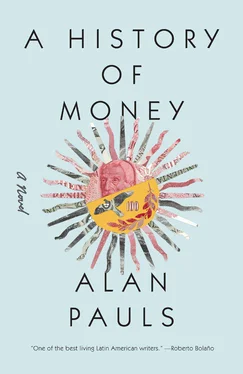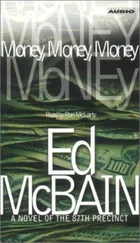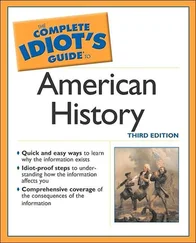Though it’s hard to believe, ten thousand dollars go to him. That translates to a hundred and forty thousand pesos in January, when his mother’s husband gives them to him, and nineteen million five hundred thousand in December, when the apartment in which he’ll sleep for less than two months has sucked all but the last centavo out of him. He never really recovers from the shock. The line about the living inheritance doesn’t convince him. He thinks there must be something else. If it’s some bizarre code of ethics on being a stepfather, he’d like to know about it, and maybe what its principles are. He’s wary. What if the money is just the visible part of a plan he knows nothing about, and by accepting it he’s committing to a life he doesn’t want? But his mother’s husband doesn’t give any explanations — he’s not a big talker — and, despite his worst fears, he’s more respectful of him and takes more of an interest in his affairs than ever after giving him the money. Meanwhile, his mother, whether out of objection, or jealousy, or because her husband’s decision surprised her as much as it did him, takes every opportunity to let him know that she was responsible — not directly, because they never spoke about it, but by a sort of osmosis, using her private, everyday influence, which then explains a multitude of otherwise inexplicable things — for making sure that that pile of cash, as she calls it — and from the way the phrase twists her mouth it’s obvious that this is the first time she’s used it — went to him and not a fixed-term dollar account, another property in Uruguay, a brand-new Japanese car, or the most expensive tournament pass to the tennis club in Forest Hills, including a five-star hotel and first-class flights. She tells him this when he first receives the money, naturally, but she also carries on telling him after that, eternally, so that he can never forget: when he uses it to renovate the apartment he plans to share with his wife, and later on, after the separation, when he and his ex-wife sell the newly renovated apartment and he brokenheartedly spends all the money, blows it — him, too! — on a trip to Europe that couldn’t be more depressing, and even much much later, when the little matter of the living inheritance has been totally forgotten, is off the agenda, and his mother and her husband separate after thirty-five years of marriage in the midst of calamitous financial and emotional bankruptcy, made mortal enemies by, among many other things, the way in which the construction of the Beast has eaten away at them over the almost fifteen years they’ve spent dealing with it. But he knows it’s not true. He knows that there’s only one person who’s responsible for this decision, extravagant as it is, and it’s his mother’s husband; that it’s to him and his secret reason for making this decision, be it love, generosity, an attempt at bribery, or idiocy, pure and simple, that he is and always will be indebted.
One thing that’s for certain is that as soon as he has the money in his power, he rejects outright the investment options his mother’s husband insists on offering him — livestock, premium semen pills, plots of fertile land outside the city: the very burdens he’s just happily rid himself of in favor of cold, hard cash and the freedom, in his own words, to dispose of it whenever he likes — and gives it to his father to take care of. He trusts his father. He even trusts him in the face of the scandalized skepticism he meets from his mother, who when she finds out gives her most sarcastic laugh and tells him very well, wonderful, but it would have been safer to put it on the horses at the Palermo tracks or invest it in stamps or subway tokens, and then informs him that if some disaster should occur — at which point a lush catalog of catastrophes seems to pass before his shining eyes — he won’t get any more from them.
What his father does with the money is a mystery. He doesn’t tell him, and he prefers not to ask, convinced that if he finds out, his life will be made impossible by worrying about its fate. He also develops a superstition: he thinks that if he ignores the game his money’s participating in, he can neutralize the irrational nature of that game, or magically tip it in his favor. The only thing he knows, because it’s the first thing his father tells him, is that for the five months his money’s put to work — during which time, he says, his capital will achieve the highest return the black market can offer — there will be no receipts or documentation, nothing official, signed, sealed, or dated; none of the stuff that would come with a fixed-term deposit at a bank or other financial institution to prove that the money exists and is earning dividends somewhere and belongs to him. He also knows that, strictly speaking, the fact that he gives his father a wad of a hundred new hundred-dollar bills doesn’t mean anything at all, and neither is there any meaning in the fact that his father puts it in his inside jacket pocket just as it is, without unwrapping it or counting it, as though he had been expecting it for years. It’s not his father’s hands that he’s placing the money in, a truth his father confirms before his very eyes some twenty minutes later in a European airline’s office, when he approaches the employee at the register, a young woman in a flight attendant’s uniform with the remains of old eyeliner on her eyelids, and after the obligatory swaggering, double entendres, and jokes that make her blush — the flirting routine that he’s been watching in action since he was a child accompanying his father on his work errands in the business district every Friday, and which he now sees as his father’s second language, a basic but crucial tongue without which none of his necessary daily transactions would turn out as happily as they seem to — his father plucks the ten thousand dollars he’s just given him from his inside jacket pocket and settles an account.
Trusting him means trusting that he knows whom to trust. His father is a link in a chain, a recruiter of cash. Without him, that money — though it’s only a modest sum — would never enter the game. But the chain is long and winding, and he doesn’t know the other links, and they probably don’t and won’t ever know one another, not because it’s safer that way or out of a desire to preserve hierarchies — these being the most common explanations for the obsession with compartmentalization that underlies the logic of many secret organizations, among them the armed organization that is said to have crashed the helicopter carrying the dead crostini lover, along with the attaché case full of money and the pilot — but because they’re linked by nothing more than a number, a purely nominal entity, in this case ten thousand dollars, or to put it another way, one more among the millions of anonymous figures that set the game in motion and keep it going. This is all he needs to know about the logic of finance, a magma that will always fascinate and elude him. No, there’s no such thing as “his” money; “his mother’s husband’s money” doesn’t exist, nor “his father’s.” Money isn’t personal, it isn’t property, it doesn’t belong to anybody. Money is what’s always there before money. It’s a boundless ocean, nothing but horizon, into which millions of wads just like his flow every second, from every direction, losing their identities the moment they plunge in and surviving for months in a state of total formlessness and amnesia, every trace of their origin and even any quantity distinctions having been wiped out; in the best-case scenarios they return to being what they once were when a shore appears out of nowhere and, from it, someone remembers them and recognizes them and returns them to everyday circulation, enriched by the scars left by danger and adventure.
Читать дальше












